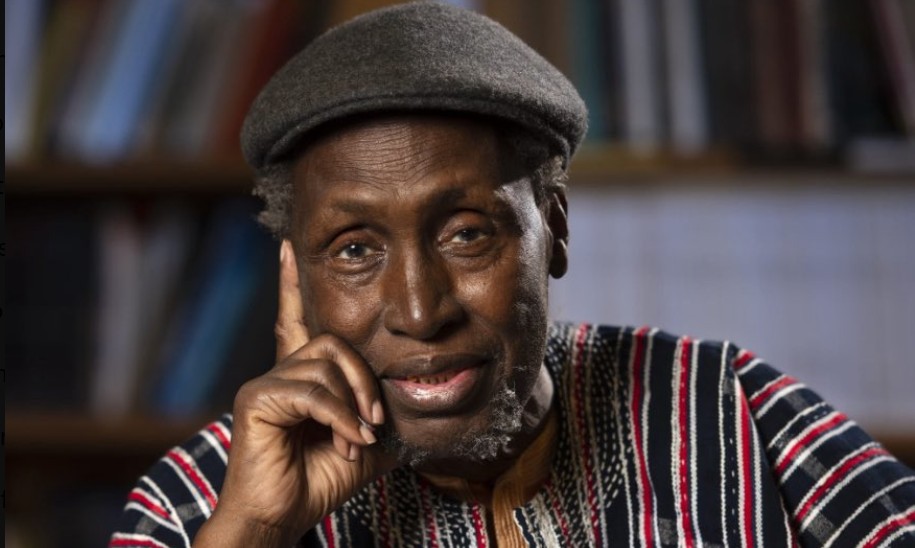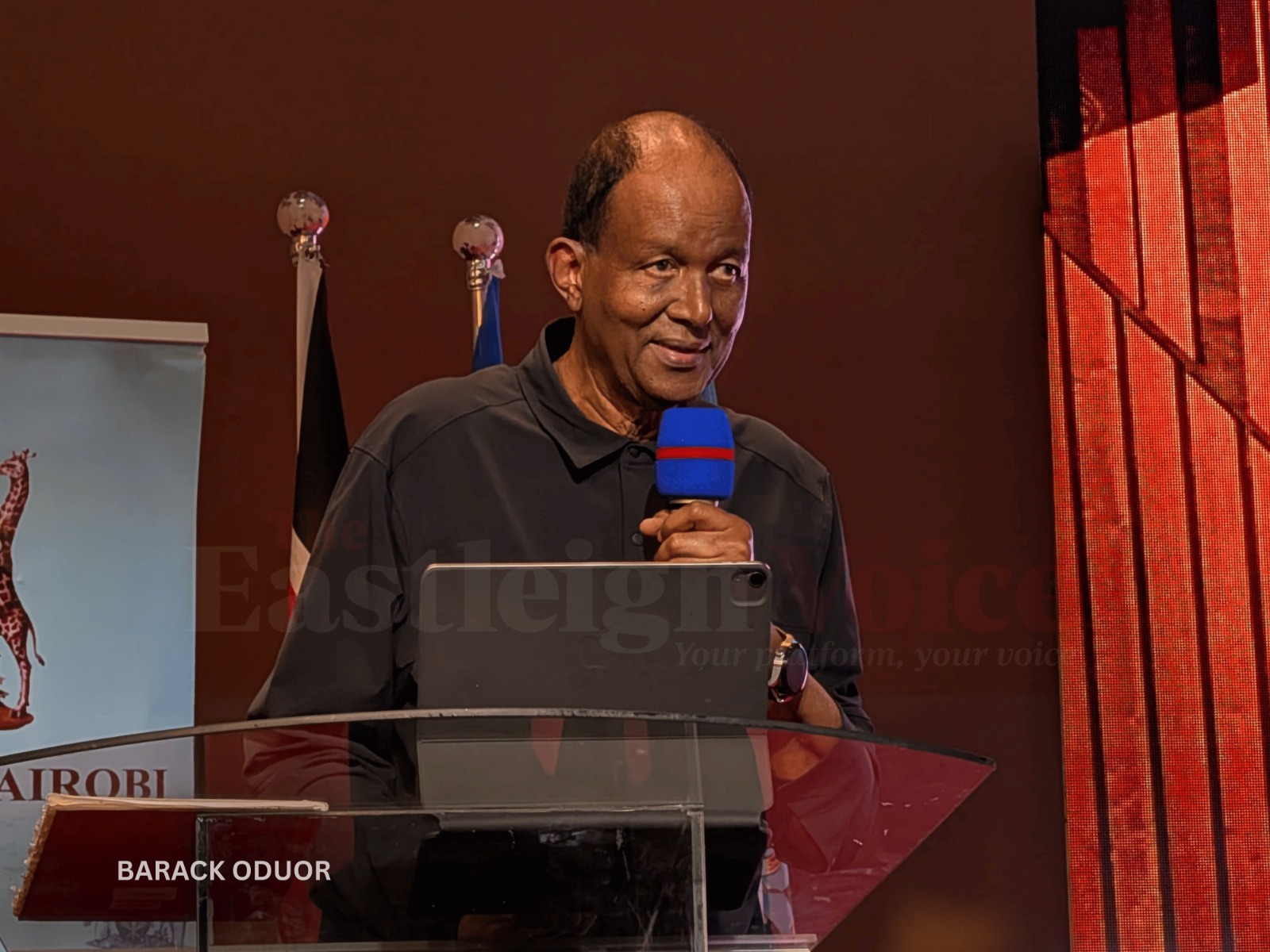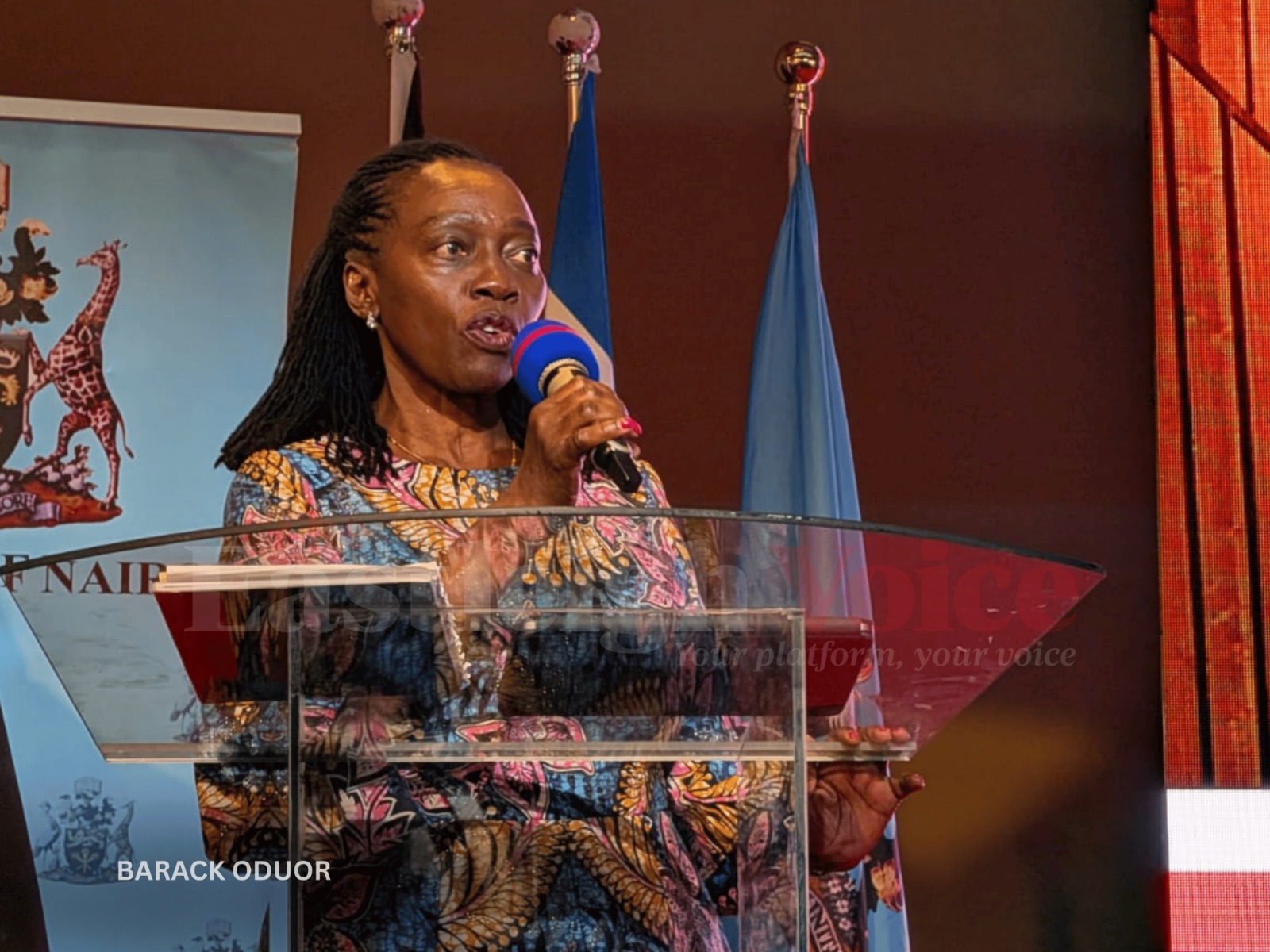Tears flow as Kamukunji MP Yusuf Hassan recalls life in exile, activism struggles with Ngũgĩ wa Thiong’o
Addressing a gathering at a memorial event organised by the University of Nairobi to celebrate Ngũgĩ’s life and work, Yusuf moved the audience with powerful recollections of bravery, hardship, and unwavering commitment to democracy, at a time when challenging Kenya’s authoritarian regime was almost unthinkable.
Tears of pain and nostalgia flowed at the University of Nairobi’s Taifa Hall on Friday as Kamukunji MP Yusuf Hassan recalled his days of struggle for freedom alongside the late literary icon Ngũgĩ wa Thiong’o.
Addressing a gathering at a memorial event organised by the University of Nairobi to celebrate Ngũgĩ’s life and work, Yusuf moved the audience with powerful recollections of bravery, hardship, and unwavering commitment to democracy, at a time when challenging Kenya’s authoritarian regime was almost unthinkable.
More To Read
- Renowned Kiswahili scholar Ruo Kimani-Ruo dies, leaving language fraternity in mourning
- UoN lecturers, workers demand implementation of 2017–2021 CBA
- Kamukunji MP Yusuf Hassan to sponsor 120 underprivileged students in technical training
- Second Lady Joyce Kithure calls for tougher action to eliminate lead exposure in Kenya
- Kenya Publishers Association honours Ngugi wa Thiong’o with Hall of Fame induction
- Ngugi wa Thiong’o to be honoured as national hero for transforming literature
He described his relationship with Ngũgĩ as extending far beyond books and writing. They shared time in exile and endured the trials of political activism together.
“I had the privilege of knowing and working with Ngũgĩ not within the confines of academia, but in the real world of politics and activism,” said Yusuf.
 The late award-winning author Ngũgĩ wa Thiong’o, who died on May 28, 2025 in the US. (Photo: Courtesy)
The late award-winning author Ngũgĩ wa Thiong’o, who died on May 28, 2025 in the US. (Photo: Courtesy)
Their time together in London, he said, was filled with deep thought and a shared passion for freedom.
“London may symbolise the metropolis of the British Empire and a reminder of colonialism, but in the 1980s, it was something entirely different for us. It was a vibrant hub of culture, activism, and politics, uniting Africans and people of African descent from the Caribbean,” he recalled.
Yusuf described London at that time as a hotbed of radicalism and a sanctuary for left-wing activists, academics, students, and writers from Africa and beyond.
He stressed that they were not in London for leisure; they were fleeing persecution. Their exile coincided with the emergence of Black politicians in British politics, largely due to intense activism.
“Ngũgĩ had left Kenya at a time of great struggle. In addition to producing groundbreaking plays like Ngaahika Ndeenda and The Trial of Dedan Kimathi, and establishing the Kamirithu Theatre Centre, he played a pivotal role in founding underground progressive movements such as the December 12 Movement,” Yusuf said.
 Kamukunji MP Yusuf Hassan pays tribute to Ngugi wa Thiong'o. (Photo: Barack Oduor)
Kamukunji MP Yusuf Hassan pays tribute to Ngugi wa Thiong'o. (Photo: Barack Oduor)
Shortly after Ngũgĩ’s arrival in London, Yusuf and others formed a solidarity group called the Committee for the Release of Political Prisoners, initiated by Wanjiru Kihoro in June 1982. Founding members included Ngũgĩ, Wanyiri Kihoro, Abdilatif Abdallah, Wangui wa Goro, among others.
The committee enjoyed broad support from prominent figures in the global Black liberation movement, including writers, parliamentarians, and activists.
“We campaigned for many political prisoners, including Raila Odinga, Koigi wa Wamwere, George Anyona, Akong’o Oyugi, Kamau Kuria, Maina wa Kinyatti, and others who were languishing in Moi’s prisons,” Yusuf noted.
He also expressed shock upon his return from exile to find that many of his former comrades had taken divergent political paths.
“To my surprise, when I returned from exile, I discovered that many of the activists and freedom fighters had aligned themselves with various political formations,” he said.
In a particularly emotional moment, Yusuf recalled Ngũgĩ’s return to Kenya from exile and the shocking incident in which he and his family were assaulted.
Ngũgĩ, he said, was supportive of Yusuf’s entry into politics, though he harboured serious concerns about his safety.
“Ngũgĩ was supportive when I expressed interest in running for the Kamukunji parliamentary seat. But he was deeply concerned that I might be rigged out or worse, harmed,” Yusuf revealed.
Ngũgĩ’s fears were justified. Yusuf narrowly survived a bomb attack that left him severely injured. He was, however, comforted to know that Ngũgĩ had followed his recovery closely.
Yusuf described Ngũgĩ as both a friend and a mentor.
“It’s incredibly hard to accept that this giant of our times is no longer with us. Through your writings, thoughts, and actions, you continue to inspire millions. You will forever be remembered as a legendary son of Africa. Go well, comrade,” he said.
 People's Liberation Party (PLP) Martha Karua pays tribute to Ngugi wa Thiong'o. (Photo: Barack Oduor)
People's Liberation Party (PLP) Martha Karua pays tribute to Ngugi wa Thiong'o. (Photo: Barack Oduor)
Politician Martha Karua and other speakers also paid glowing tribute to Ngũgĩ, with calls for a street or statue to be erected in his honour.
Karua particularly commended Ngũgĩ’s role in promoting African languages, noting that his work challenged the country to confront how language perpetuates colonial legacies.
“There is a close relationship between language and identity. If you know nothing of your language, you know nothing of your culture,” Karua stated.
She also recalled attending lectures by Ngũgĩ during her student days at the University of Nairobi.
The colourful event included performances of Ngũgĩ’s plays, staged in his honour, celebrating his contribution to the liberation struggle, freedom, and literary excellence in Africa and beyond.
Top Stories Today











































